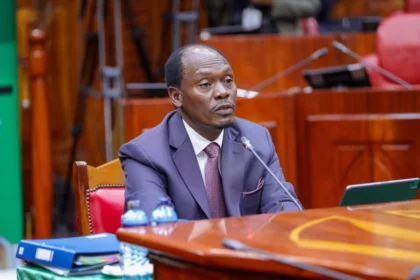Kenya once stood out as a global model of financial inclusion. The country impressed the world with M-Pesa, agency banking and digital tools that expanded access and lowered barriers.
That picture is changing. Kenya is slipping into a concerning pattern of excessive microcredit use. Many people now depend on quick digital loans to handle daily needs. Reports from credit bureaus, FinAccess surveys and mobile money disclosures show the same trend. Small and frequent loans now shape the financial lives of millions. These products are not long term facilities. They are instant loans designed to cover short term gaps and help households stay afloat.
Digital loans play important roles. They help people manage unpredictable incomes. They offer fast cash during emergencies. Yet they also push families into rising debt, constant refinancing and fragile finances. A small setback can trap households in cycles of tiny loans that roll over continuously.
The Weak Credit Reference Bureaus
This dependence hides a deeper threat. Kenya’s credit system now relies on strong and stable credit reference bureaus. A CRB is not an ordinary business. It forms the backbone of the lending system. It collects, verifies and protects credit records for both individuals and companies.
A weak CRB can shake the entire sector. Faulty data can also distort credit scores, mislead lenders or block access to credit. Errors can cause excessive lending, rising defaults or sudden tightening. Kenya needs accurate and reliable credit information to maintain a healthy lending environment.
Recent issues around Metropol, the country’s largest CRB, highlight this danger. A 2022 inspection by the Central Bank of Kenya uncovered serious financial challenges at the bureau. A forensic audit in 2024 also raised concerns about its management.
Metropol later sought approval to sell its business to a private equity firm, but the deal collapsed. Shareholder disputes blocked progress, including in the Ugandan subsidiary. Some shareholders still hope to attract another investor. But a CRB is not a normal company. Its stability supports the entire microcredit system that millions use every day.
If Metropol failed, the impact would spread to Fuliza, Hustler Fund, M-Shwari, digital lenders, saccos, microfinance institutions and regulators. A disruption would create confusion, wrong risk assessments and possible credit freezes.
Any new investor must meet strict standards. Kenya needs partners with strong data analytics capacity, real-time loan reporting systems and cyber security expertise. They must protect customer data and support the digital credit ecosystem. These conditions cannot change.
Regulators must also act. They must tighten oversight, protect borrowers and ensure stable credit services. They must prepare clear plans to safeguard credit data and maintain operations if a CRB faces distress.
Kenya’s growing dependence on small digital loans makes a strong credit system vital. If the institutions that support this system fail, they could deepen the financial pressures that many Kenyans already face.
Also read: Co-op Bank’s Legal Win Over Intestyl Explained













